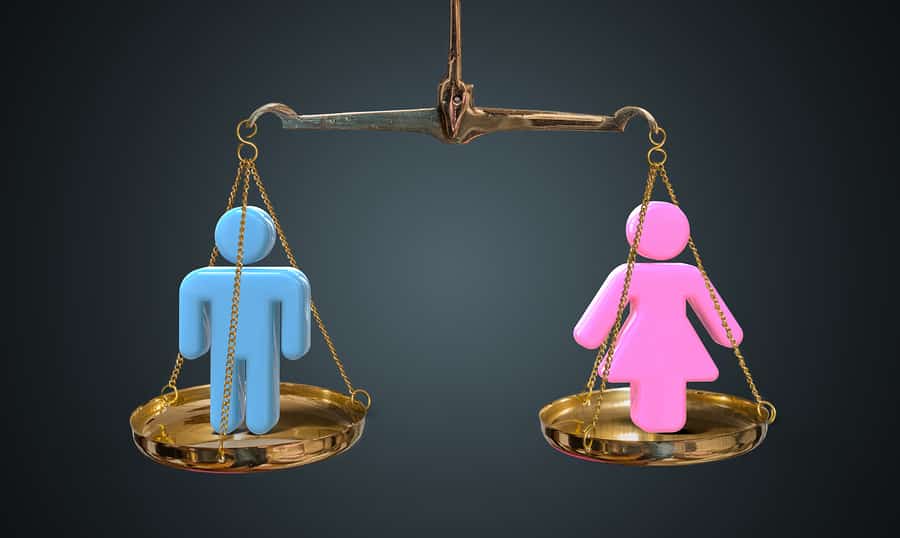Everyone works for a living and we expect to be paid a fair and honest wage for the work we do. Unfortunately, this is not always the case and some workers are getting cheated out of money that should be paid to them. And worst of all, it is being done by employers who are either neglecting to uphold employment payment laws or who are deliberately cheating workers out of a fair wage in order to save money. Thankfully, there are legal protections in place to help reduce these instances and to offer victims a way to see compensation.
“The Equal Pay Act requires that men and women in the same workplace be given equal pay for equal work. The jobs need not be identical, but they must be substantially equal. Job content (not job titles) determines whether jobs are substantially equal. All forms of pay are covered by this law, including salary, overtime pay, bonuses, stock options, profit sharing and bonus plans, life insurance, vacation and holiday pay, cleaning or gasoline allowances, hotel accommodations, reimbursement for travel expenses, and benefits. If there is an inequality in wages between men and women, employers may not reduce the wages of either sex to equalize their pay. An individual alleging a violation of the EPA may go directly to court and is not required to file an EEOC charge beforehand. The time limit for filing an EPA charge with the EEOC and the time limit for going to court are the same: within two years of the alleged unlawful compensation practice or, in the case of a willful violation, within three years. The filing of an EEOC charge under the EPA does not extend the time frame for going to court” (Equal Employment Opportunity Commission).
Fast Facts about Equal Pay Laws
- Forty-two states have equal pay laws to protect both male and female workers from pay discrepancies for similar work.
- Eight states have an exemption for small businesses who have a limited number of employees, bring in below a certain amount of profits each year, or who have very specialized niche/skill needs.
- Most state equal pay acts grant exceptions for pay systems based on wage differentials other than gender, such as seniority or merit.
- All forms of compensation are covered, including salary, overtime pay, bonuses, stock options, profit sharing and bonus plans, life insurance, vacation and holiday pay, cleaning or gasoline allowances, hotel accommodations, reimbursement for travel expenses, and benefits.
Filing a Claim in Court
If you are a victim of wage or compensation discrimination by your employer you have a right to seek compensation and to file a court claim. The statute of limitations for filing an Equal Pay Act claim is two years from the date of the alleged unlawful compensation practice or, in the case of a willful violation, the statute of limitations is three years. The Lilly Ledbetter Fair Pay Act extends the statute of limitations for discriminatory compensation claims by clarifying “that a discriminatory compensation decision . . . occurs each time compensation is paid pursuant to the [discriminatory decision]. It is important to file your case as soon as you can and to work closely with a skilled and experienced legal team who can help advise you on all aspects of the case and your court hearing. Victims of pay discrimination can recover compensation of many kinds which can include:
- back pay owed from previous paychecks that were not paid at the appropriate rate
- hiring or getting a promotion to a position that was denied illegally
- reinstatement to a position that you were terminated from or forced to leave
- front pay to cover current work time at the new legal pay rate
- compensatory damages to cover things like emotional pain and suffering
- punitive damages which are aimed at the employer in order to punish them
- other actions that are deemed reasonable by the judge based on the case details
Compensation often awarded by the court, but not directly given to the plaintiff also may include an order that the employer be responsible for the payment of:
- attorneys’ fees racked up by the plaintiff for the case
- expert witness fees that were charged during the course of the court hearing
- all court costs associated with the trial proceedings
The goal of bringing a case to court is twofold- one is to give the employee the earnings that are due to them for the work they have done and two is to punish the employer for not upholding the law. The consequences for the employer can be much more than simple monetary payments to the single employee who brought the case forward. An employer may be required to post notices to all employees addressing the violations of a specific charge and advising them of their right to be free of discrimination, harassment, and retaliation. If necessary, such notices must be accessible to persons with visual or other disabilities that affect reading. The employer also may be required to take preventive or corrective actions regarding the source of the discrimination and minimize the chances it will happen again, as well as discontinue the specific discriminatory practices involved. State law may allow for greater or different remedies than federal law.
Contact Us Today to Learn More
Remember, it is unlawful to retaliate against an individual for opposing employment practices that discriminate based on compensation or for filing a discrimination charge, testifying, or participating in any way in an investigation, proceeding, or litigation under current laws. If you have questions about your rights and what legal course you can peruse, contact us today. Our team of experts are standing by and will assist you in any way we can.
